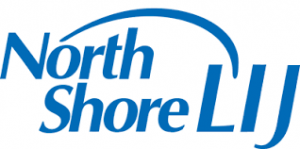Imagine if Pfizer or GSK or any of the largest pharmaceutical manufacturers decided to buy a hospital network, and then dispensed only their own brands of medications to the thousands of patients that come to them for treatment each month. Cries of “foul” would flood the media channels in an effort to call out the obvious conflict of interest. So why no similar outrage for NY hospitals that wish to land one of only five licenses to dispense medical marijuana in NY State?

North Shore LIJ is arguably one of the most dominant medical systems on Long Island, and parts of NY City. They own community and teaching hospitals, rehabilitation centers and specialty care centers focusing on illnesses such as cancer. They also own quite a number of doctors as their practice management business offers physicians the chance to offset the high costs of managing a small office in exchange for a percentage of their revenue. This puts patients squarely in the middle of an ethical dilemma: when the service of care is one and the same as the medicines of care, how will patients know if they are getting the best care?
The current administration set in motion a tricky enterprise when it decided to legalize medical marijuana. One the one hand, the government wanted to put in place a set of guidelines and restrictions designed to limit abuse and fraud. On the other hand, many argue that the rules are so restrictive that they may deny access to relief for the very ill people who need it the most. Let me explain. In a state with over 20 million citizens, New York will authorize only five licenses, and only four dispensaries per licensee. That’s one dispensary for every one million people. Even if only 10% qualify for medical marijuana, that’s 100,000 flooding each dispensary every month. And because the population of NY State is unevenly distributed, that could mean even greater floods in urban areas, or great droughts in rural areas.
Additionally, NY State has defined a “brand” as a fixed ratio of two cannabinoids: tetrahydrocannabinol (THC) and cannabidiol (CBD). However, the state did not specify the actual milligram amounts, thereby guaranteeing that different licensees each will be producing distinctive combinations of the drug. This is a good dynamic in any normal market. Different brands compete with each other; and customers benefit from a freedom of choice.
Not so fast. Another guideline specifies that no licensee may operate a dispensary in contiguous counties, and must spread their four dispensaries equally among the vast geography that is New York. Therefore, in some rural markets, a licensee may have a monopoly. Another way to award a virtual monopoly would be to grant a license to one or two of the giant hospital networks, where patients opting to receive hospital care will have no real option when it comes to the brand of medical marijuana they will get.

In addition to the obvious conflict of interest, there’s also the question of conflicting business models. The infrastructure for a service brand is vastly different than that of a product brand. There is no guaranteed connection between being a great movie chain, such as Regal Entertainment or AMC, and being a great producer of films. It’s one thing to make goods, and wholly another to serve them up. Hospital networks such as North Shore LIJ have gotten healthcare service down to an efficient and effective science. It is disingenuous to align their brand of service with a completely unproven brand of medication. Michael Jordan was a stellar basketball player. Not so great at baseball.
Considering the virtual monopoly that North Shore LIJ has on doctors and patients in their geographies, and considering the difficult and controversial nature of launching a medical marijuana empire, NY State would do patients a great disservice by awarding them a license at the outset. It’s not that we don’t trust North Shore LIJ; it’s that the situation itself is not trustworthy. It took HBO—a premier distributer and broadcaster of other parties’ content—over 25 years to become a premier developer of content. Let’s not rush to create a monopoly. It’s called compassionate care for a reason.
